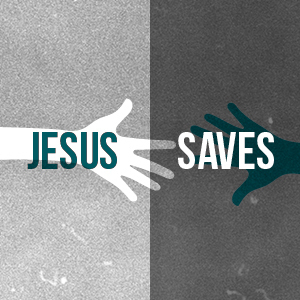Jesus Doesn't do What we Expect Luke Davydaitis
Trapped in prison, John the Baptist struggled with disappointment as Jesus did many wonderful things nearby but didn’t set him free. All of us have to deal with Jesus doing things we don’t expect, and not doing what we want. He will give us grace to keep trusting Him in these difficult times.
John was born with high expectations (Luke 1:5-17, 67-80), and spent his whole life preparing to be the one who prepared the way for Jesus. Having been suddenly arrested by Herod, it was difficult for John to hear about all the things Jesus had been doing whilst he himself remained captive, even though Jesus’ self-declared job description promised liberty for the captives (Luke 4:18-19). That’s why he asked Jesus if He really was the Messiah despite hearing about Jesus doing amazing miracles (Luke 7:18-23).
Sometimes life doesn’t go as we expect but we soon see that God was working for our immediate good: growing our character through discipline or revealing a far better plan than ours. Not everything that happens to us can be explained or understood in these ways, however. Jesus makes an offer to John, and to all of us, that we can know true blessing even in times of confusion and devastation, by not being offended by Him, by not letting whatever is happening change our opinion of God for the worse.
(Please note that some things that happen to us are so powerful that we need expert help, and this is part of God’s loving care for us in the healing of us and our faith.)
Jesus doesn’t give John an explanation for what’s happening to him but he does give assurance by telling us to look at what He’s done and listen to what He’s said. As we do this with faith, we will receive grace to endure.
Look.
Look at what’s happening right now. There is always some evidence of God’s goodness to us because any good thing we have comes from Him (James 1:17).
Look back to your past. Each of us will have stories of when God was particularly good to us, and there’s no greater example of this than Him saving us. Psalm 143:4-5 shows an Old Testament believer applying this principle; where they looked back to the Exodus for the definitive revelation of God, we look to the cross.
Look around you. This can be very tricky and we have to be shaped by the gospel to do this without jealousy or resentment! Hebrews 11:34 and 37 tells us that faith causes some people to escape death and some to be killed, in Acts 12 James and Peter were both arrested but one was miraculously freed whilst the other was executed. Looking at God’s present and obvious goodness in the lives of others can remind us that He really is working for our good now too.
Listen.
The misery of Lamentations 3 is interrupted by astonishing statements about God’s goodness (verses 22-23). Where did the writer get that conclusion from? By listening to the songs of Israel: the book of Psalms contains 120 mentions of the Hebrew word for steadfast love that God revealed about Himself to Moses in Exodus 34:6. We should tell God honestly how we’re feeling but then listen to Him tell us the truth about Himself.
John stayed in prison until he was executed by Herod (Matthew 14:3-12). Jesus must have been devastated by this and tried to get by Himself to mourn and pray but the crowds followed Him. Once again He didn’t do what we might expect but instead had compassion on them, taught them, and fed them miraculously (Matthew 14:13-21). Then He continued on His journey to the cross: the most unexpected thing that has ever happened. The next thing John heard after the swish of the sword was the roar of Heaven’s welcome – a welcome that Jesus had won for Him at the cross. He had set the prisoner free, just as He promised.
Questions:
- Is it OK to be disappointed with God? Can you think of other biblical examples of people like John honestly expressing their feelings to God?
- What do you think Jesus means when He says, “Blessed is the one who is not offended by Me?”
- Why do you think we expect that Jesus will do everything we want?
- How should the gospel shape our thinking when we’re processing disappointment?
- How can you be “looking and listening” as Luke recommended?
- What can you do to keep you aware of God’s goodness in your daily life and in your past?
- What are the risks of looking at others for encouragement when they’re being “obviously” blessed in the present and you aren’t?

